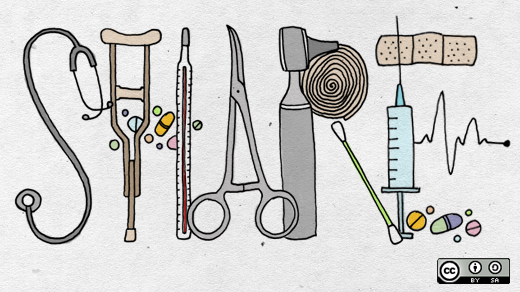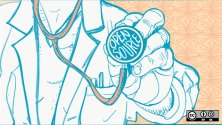Could patent restrictions in biotech be compromising millions' health, safety, and standards of living when we should be benefiting from new diagnostic tests or improved medicines?
We're living in a time of technological explosion in biology, medicine, and genetics. Gene sequencing efforts are going on all over the world. We've amassed mountains of data: biological data, genome sequences, results of experiments, and clinical trials. But the genome biobanks have been sitting mostly idle. Individual groups are working to figure out how to make all this data useful, but this work is mostly going on in silos, information is rarely shared and certainly not in any optimal way.
This data has the potential to make a profound impact on healthcare, disease control, longevity, and perhaps even personalized medicine for patients, based on their own unique genetic sequences.
"We need to establish disruptive incentives for researchers, industry and the public to work together in fundamentally news ways to accelerate meaningful improvements in healthcare," says Stephen Friend, M.D., Ph.D., founder of nonprofit Sage Bionetworks.
Friend believes that we need to better share this data. By doing so it would "allow researchers to see patterns they wouldn’t otherwise see, and make insights that would never emerge any other way," he told Luke Timmerman in an interview earlier this month.
So in 2009, Friend quit his high-powered senior vice president position at Merck to start an open source movement in biology, not unlike the one we’ve seen in open source software. "The Sage Commons is built on the notion that the genomic symphony is too bewildering for any individual or team—even at a place with as many dollars and brainiacs as Merck—to figure out."
Sage is addressing the complexity of human biological information and the treatment of disease by encouraging loosely affiliated people from around the world to pool their brainpower and contribute to something great like improving drug development, or helping to personalize medicine.
But two years in, Friend has learned many people resist change. Friend told Timmerman that Sage has encountered some resistance. "Academic institutions still cling to their intellectual property out of a hope it will someday make them money. Scientists, by and large, keep their experimental data close to the vest in the hope they can get career-making papers published in Science or Nature. Many drugmakers can’t really imagine sharing anything valuable outside their corporate firewalls, lest it undermine their competitive standing."
Last week Sage held its second annual Commons Congress in San Francisco to build momentum for this movement to provide open tools for biomedical research. The event highlighted Sage's effort to establish a common language for human disease biology, one that researchers can access freely online to advance new discoveries and to find new ways to improve health.
Friend believes, "If this thing goes viral throughout biomedicine, it will change the way we think about healthcare. If it doesn’t go viral, it will probably fade into irrelevance."
What recommendations or advice do you have for Friend about how he can continue to gain traction for this open source biology movement?






1 Comment